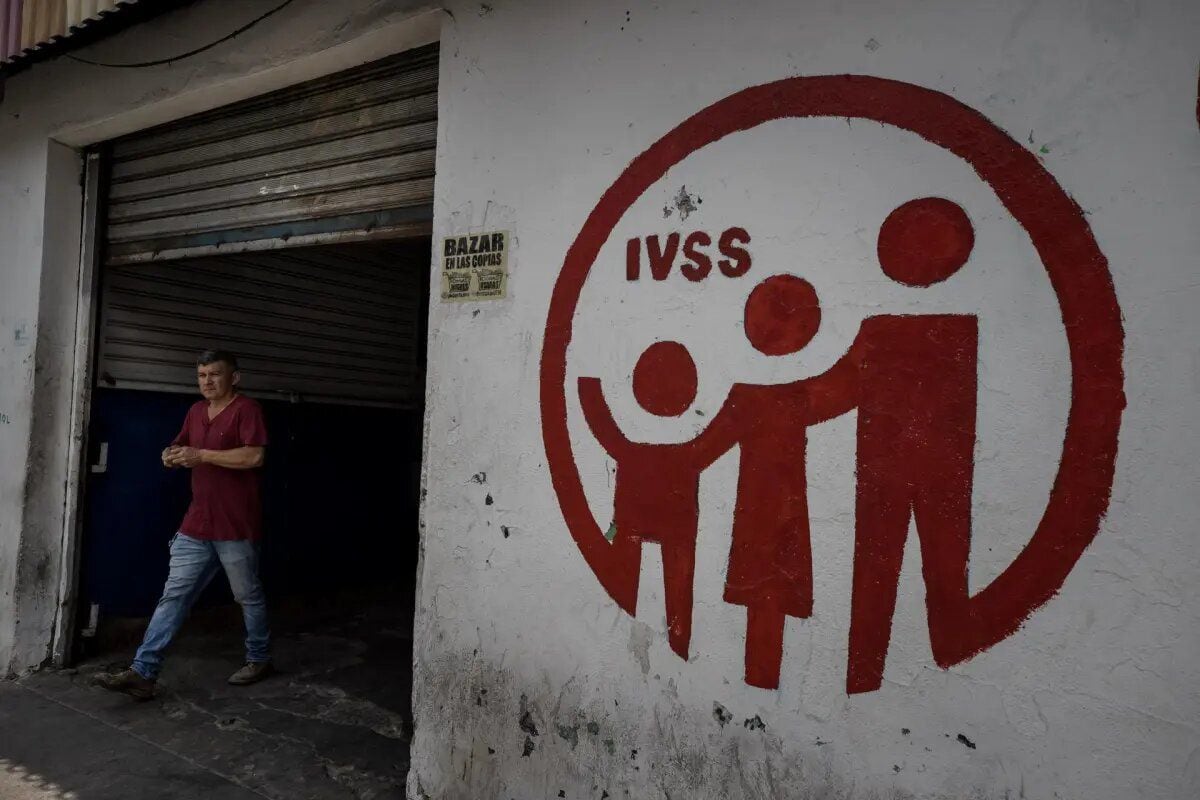
In Venezuelaonly 5% of the population has some kind of private insurance, mainly health. The rest are at the mercy of a deficient public health system or aid or fundraising campaigns to be able to pay for clinical services, which are very expensive for most citizens.
The executive president of the Chamber of Insurers, María del Carmen Bouffard, said that the Venezuelan “it has lost its purchasing power due to the economic contraction of recent years”which reduced the gross domestic product (GDP) by 80% between 2013 and 2021, according to independent estimates.
“This has caused many people (…) who had their health policy to stop contracting it and this, obviously, has affected the insurance sector in recent years, (which) has lost a large number of clients,” assured.
This “loss of purchasing power”he continued, has forced citizens to “meet your needs first” food, medicine and, in the case of those who have children, education.
In his opinion, having private health insurance is a necessity, especially due to the situation of hospitals and the high cost of services in clinics, which “not everyone has (the capacity) to pay” and that, “in recent years”has registered an increase “very important”.
Low income, the main problem
A retired colonel of the Bolivarian National Guard (GNB, militarized police), whose name he asked to protect, said that, with his pension -of about 42 dollars a month, at the official exchange rate-, he cannot pay for private insurance, so, “unfortunately”when he needs it, he resorts to a military health center, where the service is “deficient”.
“I don’t have private insurance because I don’t have financial availability, because my pension is very low, and so, in that situation, we are all military personnel, both active and retired”said the man, 62, an age for which companies charge premiums that can range from $65 a month (for $5,000 coverage) to $131 (for $100,000).
The insurance you have through the Ministry of Defense is, “virtually inoperative”and he does not even think about going to a private center, whose costs he cannot cover.
Insurance advisor Nancy Sáez stated that, although “It has become essential to have insurance”, “not everyone can choose to obtain a health policy”in a country where 81.5% of the population is poor, according to the income measurement calculated by the Andrés Bello Catholic University (UCAB).
“It is essential because public hospitals, unfortunately, are destroyed,” Sáez assured, a reality for which the Government blames international sanctions on Venezuela, which has a large part of its assets abroad blocked and unable to dispose of them.
According to a report by the NGO Médicos por la Salud published last March, the shortage of supplies in the operating rooms of public hospitals in January was 72%, while in the emergency area it was 46.2%.
The Venezuelan Medical Federation (FMV) has repeatedly denounced that, in hospitals, the water and electricity service constantly fails, as well as the provision of medicines, surgical equipment, stretchers and the maintenance of elevators.
The insurance sector, another patient
The insurance sector was one of the most affected by the economic crisis, which, between 2017 and 2021, was marked by hyperinflation that reduced, “in a very short time”the value of the sums insured, which forced the companies to constantly update the amounts, then in bolivars, the local currency, Bouffard explained.
This accelerated rate of increase in costs led the country to adopt, de facto, the dollar, a currency that insurance companies also used to set their prices.
Then, with the pandemic, there was an increase in demand, especially due to the high costs of being treated in a private health center.
Thus, the insured population grew, slightly, from 2% to a maximum of 5%, the level it is at now, for “the covid effect”.
However, it is still a very low level, and to raise it, Bouffard clarified, “There is still a long way to go, and that also depends on a comprehensive recovery of the economy.”
The sector hopes that a recent law approved by Parliament, with an official majority, which will regulate insurance activity, will provide tools to offer new options, mainly “microinsurance”aimed specifically at the “low-income populations”Bouffard added.
Source: EFE
Source: Gestion
Ricardo is a renowned author and journalist, known for his exceptional writing on top-news stories. He currently works as a writer at the 247 News Agency, where he is known for his ability to deliver breaking news and insightful analysis on the most pressing issues of the day.












